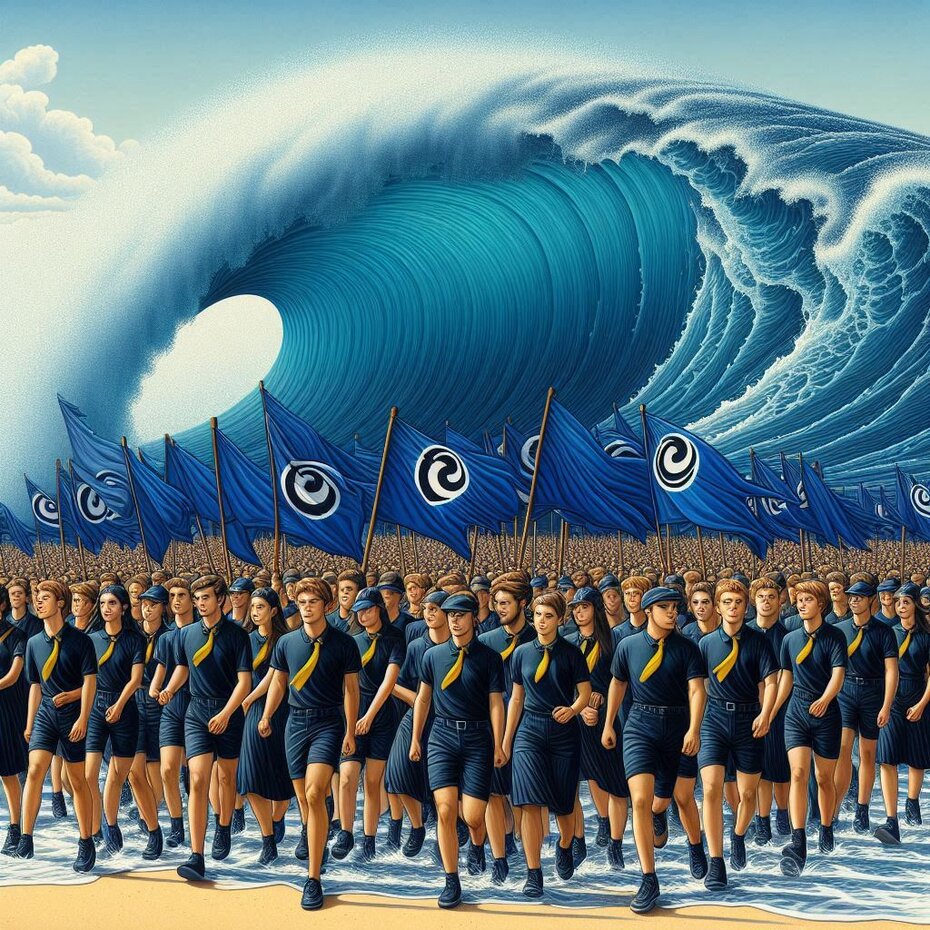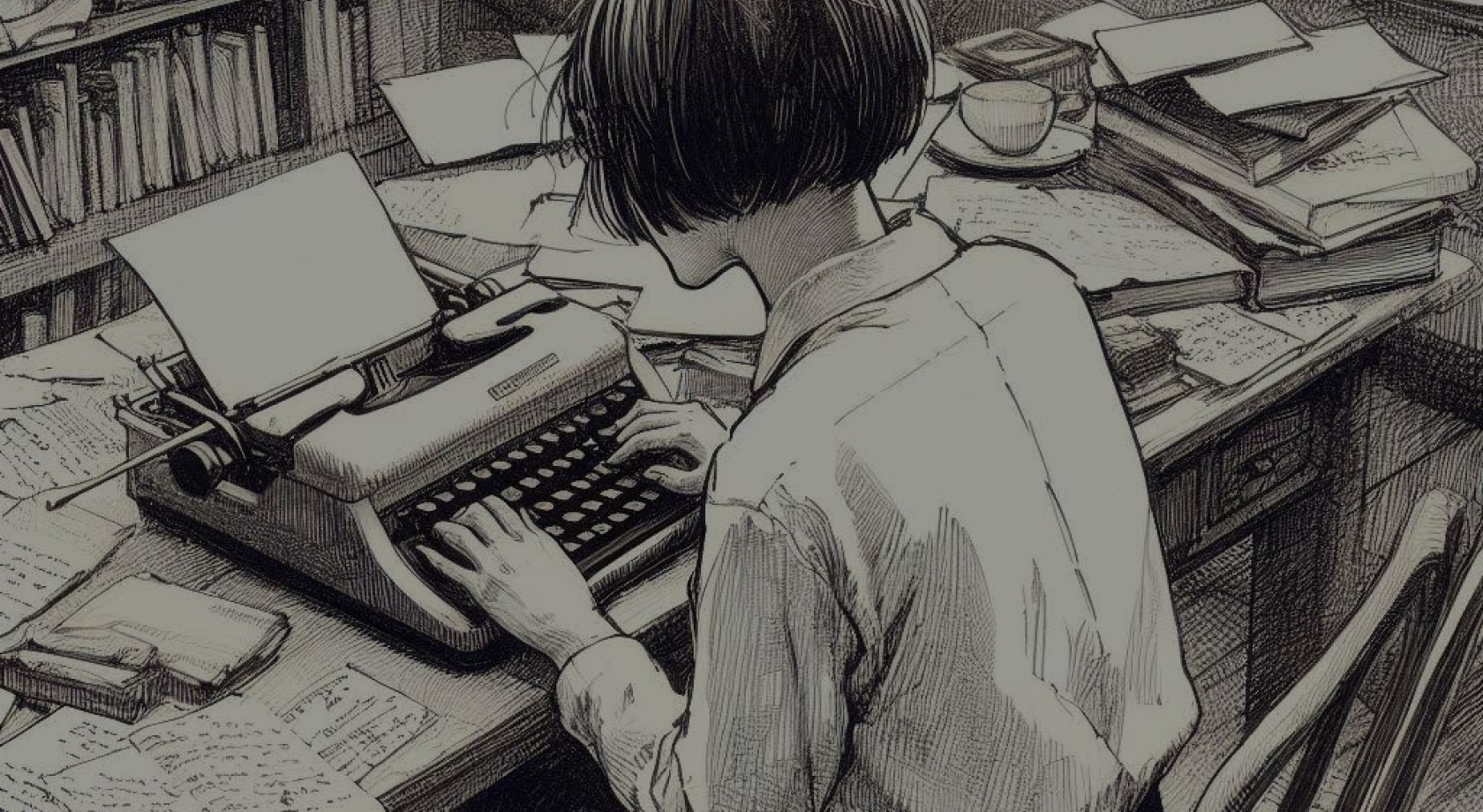The wave

Ever since I was a child, the sea has commanded my respect. Even more so now that it is growing up like a rebellious teenager. It has gone from a playful, artful child to a rebellious young man. It submerges islands, invades cities and destroys entire regions of coastline when overwhelmed by the destructive impulse of a giant wave.
In my past, I have been haunted countless times by a recurring dream of the end of times: at dawn the day after a continental tsunami, I and the other survivors would gather by the sea under a sky overcast with mist. There, scattered on the beaten sand of the beach, we were mesmerized by the apparent tranquillity of a yellowish green sea, covered in a fine white foam. Weakened by its previous night's outburst, the sea drained away peacefully. There was barely enough energy left to form backwaters in the shallows along the coast. But all around us, broken stoves, boards and furniture left by the tsunami's ebb and flow testified to its recent fury.
I grew up trying to lose this fear of the sea. I was approaching 30 when I boarded a schooner for Abrolhos, in the south of Bahia. During one of the stops the boat made on the high seas so that the divers on board could explore a shipwreck that lay peacefully at the bottom of the sea, I decided to give myself a shock treatment. I put on my mask, snorkel and fins and threw myself into the sea, dreaming of the adventures I would tell about when I returned from my trip. I was suddenly awoken from my reverie when I realized that a snorkel in a rough sea isn't much help. The salt water was invading that damn straw, preventing me from breathing, and the waves were shaking me from side to side, without me being able to control the situation. Being proud, I didn't ask for help from the divers who, armed with oxygen tanks, swam calmly around me, admiring the wreckage of the ship. Minutes later, I managed to get back into the boat and, between anxious gulps for air, I calmed down. I had narrowly escaped the end of my little world.
The Brazilian Independence Day parade that I watched today a few meters from the beach, under a sky whitened by smoke from the fires raging in our forests, brought back these memories of the end of the world. Standing on the sidewalk of the main street of a seaside resort, I absent-mindedly admired the parade of students from the local schools to the sound of a lively drumbeat, which sounded more like that of a samba school. Everyone was relaxed and cheerful, making their mothers and grandmothers happy as they followed the parade attentively. It was then that the drummers stopped and a clearing opened up on the avenue.
After waiting for some time, the drumming began again in a sober and deafening rhythm, resembling the beating of the heart: tum-tum, tum-tum. Instead of the relaxed groups from before, the avenue was invaded by a sea of young men in their starched uniforms. Dressed in black shirts, black shorts and a cap of the same color, wearing yellow scarves tied around their necks like a bow tie, they marched holding black banners with the Star of David on them, announcing that they were developing the character of Christ. On their website, they appear dressed in multicolored T-shirts, and claim to provide voluntary service, as well as fighting for a healthy society. Their values are announced through the use of emblematic words, but with obscure meanings and no explanations. But what I saw in front of me at that parade reflected a change in tone: the young people were dressed in black, with military looks and aggressive countenances. Faced with the scene, I felt invaded by a wave of unpleasant sensations. Shivering from head to toe and slightly nauseous, I remembered those other young people who 90 years ago paraded in their brown shirts in the name of obtuse values. Although defeated at the end of WWII, they would leave a sea of destruction in their wake.
There are waves that should be seen by all of us as a tsunami. Even if they form discreetly on the other side of the ocean, they grow inexorably until they break on our shores. We shouldn't remain impassive, praying for them to change course, because praying isn't enough to stop their advance.
Translated with DeepL.com (free version)
Voltar
